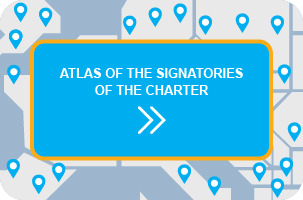Gender audits – Italy
Several municipalities and provinces in Italy have elaborated “Gender Audits” to support the implementation of local and regional gender equality policies.
By elaborating “Gender Audits” presenting gender disaggregated data, the municipalities have been able to identify:
1) What are the needs of citizens (women and men, girls and boys)?
2) How can the local public administration respond to these needs (by providing the adequate services, through policy choices, through budget commitments etc.)
3) How well has the local or regional administration reached gender equality objectives internally?
An example is the municipality Castel del Piano in the Province of Grosseto which provides an overview of statistics divided by the demographical situation of the citizens and regarding the labour market.
Based on the figures the municipality has been able to make interesting analysis of issues related to Work-life balance, for instance:
- The analysis shows that women participation in the labour market presents several differences compared to men’s, especially since women in general have a tendency to take a larger responsibility for unpaid domestic work and devote more time for family life, women are over-represented in certain, often low-paid professions, suffer from higher risks of job-insecurity, have more difficulties in reaching decision-making positions. Besides, there are still significant differences in salaries between women and men etc.
- In quantitative terms, the number of employed women is lower than men even though women, especially young women in general have higher education than men.
- Additionally, women are more likely to give up their professional careers to devote time for care of children or elderly. In order to change this, the municipality could offer adequate services for childcare and elderly care.
- From an economic point of view, there is a strong need to increase the participation of women in the labour market.
- Moreover, the fact that women take a larger responsibility for domestic tasks has been identified as one of the causes of the extremely low fertility of the Italian female population, one of the lowest in the world.
Based on these findings, the municipality has decided to allocate resources both to activities directly targeted to strengthening women’s rights (such as awareness-raising campaigns and events, supporting women’s entrepreneurship, trainings, providing meeting places for women etc.) and also allocate resources to activities indirectly related to improving gender equality (such as childcare, elderly care, social care services, public transport, green areas, culture, sports etc.)
Please find below a few examples of Italian gender audits:
- Municipality Castel del Piano – Balancio di genere
- Province of Trieste – Balancio di genere
- Region of Piemonte – Balancio di genere
To access the publication “Gender budgeting: pratical implementation” – a handbook done by the Council of Europe in 2009, please click on the following link.













